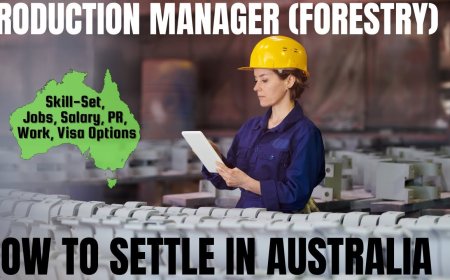Furniture Finisher Career and Immigration options for Australia
Furniture Finisher Applies finishes, such as stain, lacquer, paint, oil and varnish, to furniture, and polishes and waxes finished furniture surfaces.
Profile Title: Furniture Finisher Career and Immigration options for Australia
Alternative Title:Not Defined
ANZSCO Code: 394211 | Unit Code: 3942
Skill Level: Level 3 | Work Experience: 1 Years
Assessing Bodies: Trades Recognition Australia (TRA)
Skill Occupation List (SOL): STSOL
Specialization: French Polisher
Profile Description: Applies finishes, such as stain, lacquer, paint, oil and varnish, to furniture, and polishes and waxes finished furniture surfaces.
Job Duties:
- studying drawings, work orders and sample parts to determine specifications
- determining tooling and machine requirements and sequence of operations
- setting up woodworking machines and wood stock for correct cutting, planning, turning, shaping and sanding
- operating machines to cut, plane, turn, shape and sand work pieces
- removing old finishes by stripping with steel wool and glasspaper, and by applying solvents and paint strippers, and removing softened finishes by scraping
- applying varnish, shellac, lacquer, stains and paint to surfaces and polishing and waxing finished surfaces
- fitting and fastening frame pieces
- mounting backing materials and subjects for framing
Skill Level Description: Most occupations in this unit group have a level of skill commensurate with the qualifications and experience outlined below. In Australia: AQF Certificate III including at least two years of on-the-job training, or AQF Certificate IV (ANZSCO Skill Level 3) In New Zealand: NZ Register Level 4 qualification (ANZSCO Skill Level 3) At least three years of relevant experience may substitute for the formal qualifications listed above. In some instances relevant experience and/or on-the-job training may be required in addition to the formal qualification.
Available Visa Options (As on February 2024):
- 190 - Skilled Nominated (subclass 190)
- 407 - Training visa (subclass 407)
- 489 - Skilled Regional (Provisional) visa (subclass 489) - State or Territory nominated
- 482 - Temporary Skill Shortage visa (subclass 482) - Short Term Stream
- 187 - Regional Sponsor Migration Scheme (subclass 187)
- 494 - Skilled Employer Sponsored Regional (provisional) (subclass 494) - Employer sponsored stream
- 491 - Skilled Work Regional (provisional) visa (subclass 491) State or Territory nominated
Registration or Licensing: Not Required
Industries: Wood Machinists and Other Wood Trades Workers are mainly employed in: Manufacturing; Retail Trade; and Construction
Education Profile: The most common level of educational attainment for Wood Machinists and Other Wood Trades Workers is Certificate III/IV (100 per cent).
Job Opening: Over the five years to November 2019, the number of job openings for Wood Machinists and Other Wood Trades Workers is expected to be low (equal to or less than 5,000). Job openings count both employment growth and turnover (defined as workers leaving their occupation for other employment or leaving the workforce).
Age Group: The main age group is 45-54 years (35.9 per cent) and the median age is 48 years (compared to 40 years for all occupations).
Gender: The female share of Wood Machinists and Other Wood Trades Workers is 15.4 per cent and 83.1 per cent of Wood Machinists and Other Wood Trades Workers work full time. Average weekly hours for full time workers are 39.2 (compared to 40.2 for all occupations).
Earning: In August 2014 (latest available data) weekly earnings full-time before tax (and not including employer superannuation) were $852 (compared to earnings for all occupations of $1,200).
Employment: Employment for this occupation fell slightly in the past five years and fell in the long-term (ten years). Looking forward, employment for Wood Machinists and Other Wood Trades Workers to November 2020 is expected to grow moderately.
What's Your Reaction?
 Like
0
Like
0
 Dislike
0
Dislike
0
 Love
0
Love
0
 Funny
0
Funny
0
 Angry
0
Angry
0
 Sad
0
Sad
0
 Wow
0
Wow
0









































































































